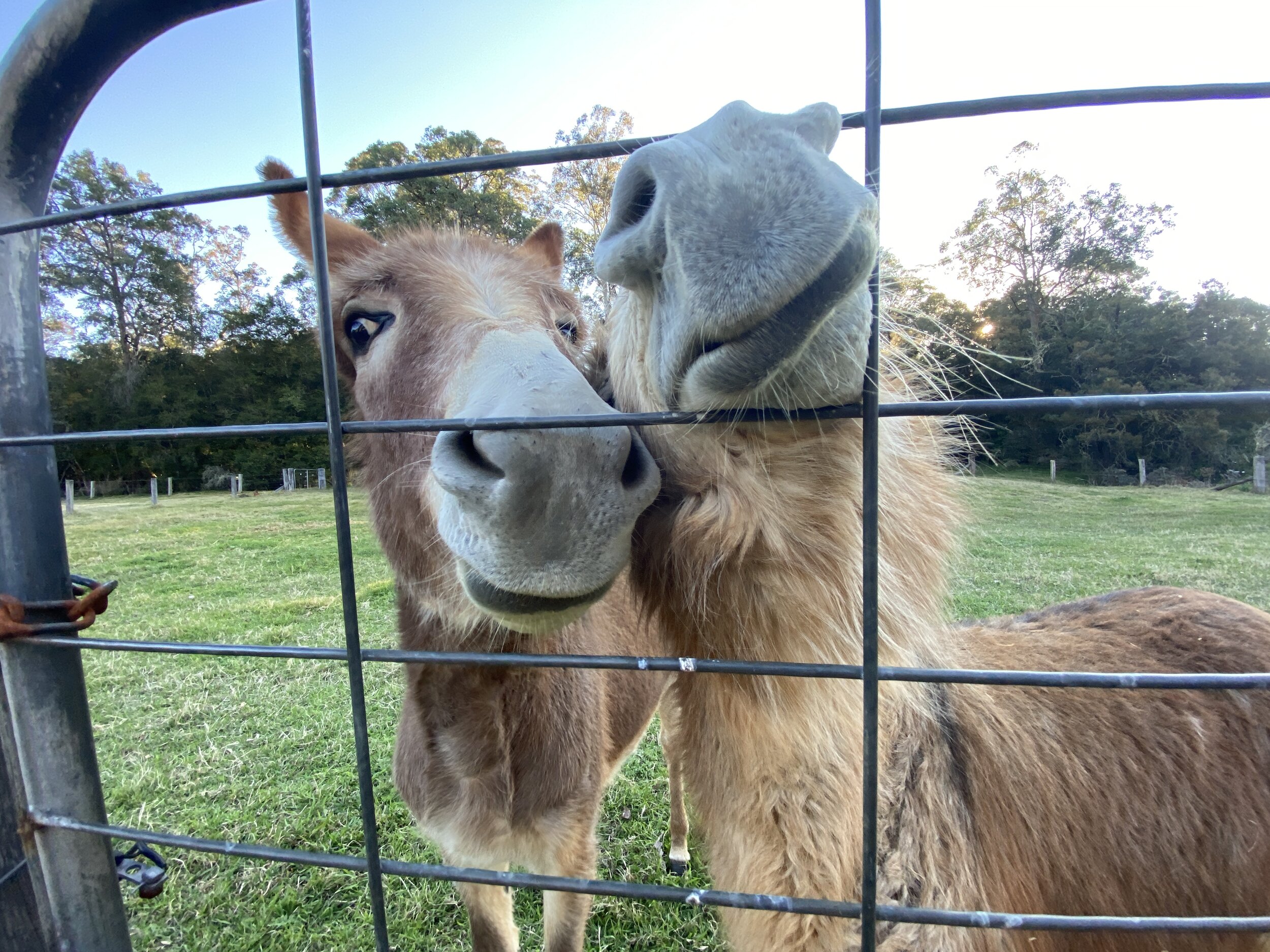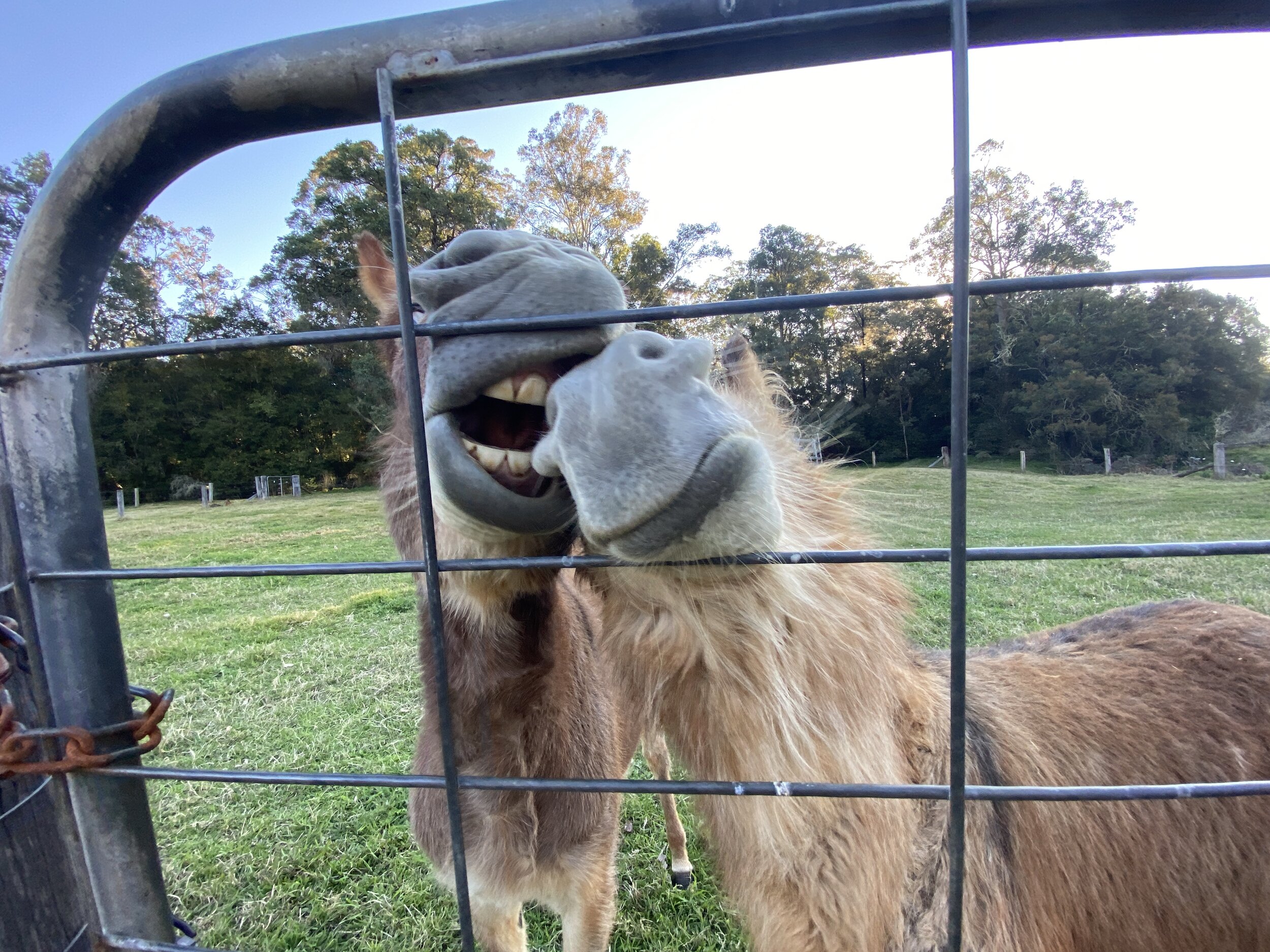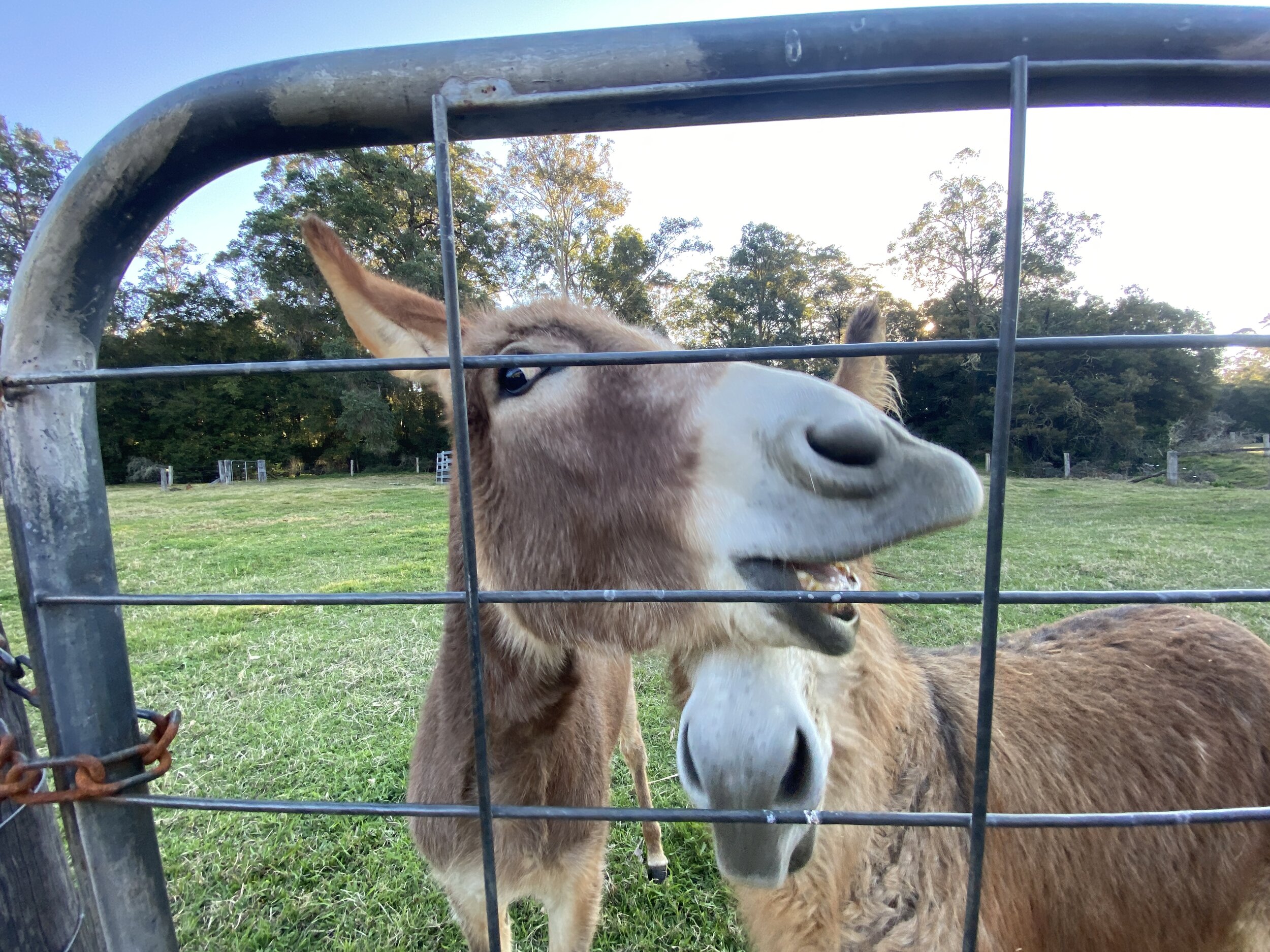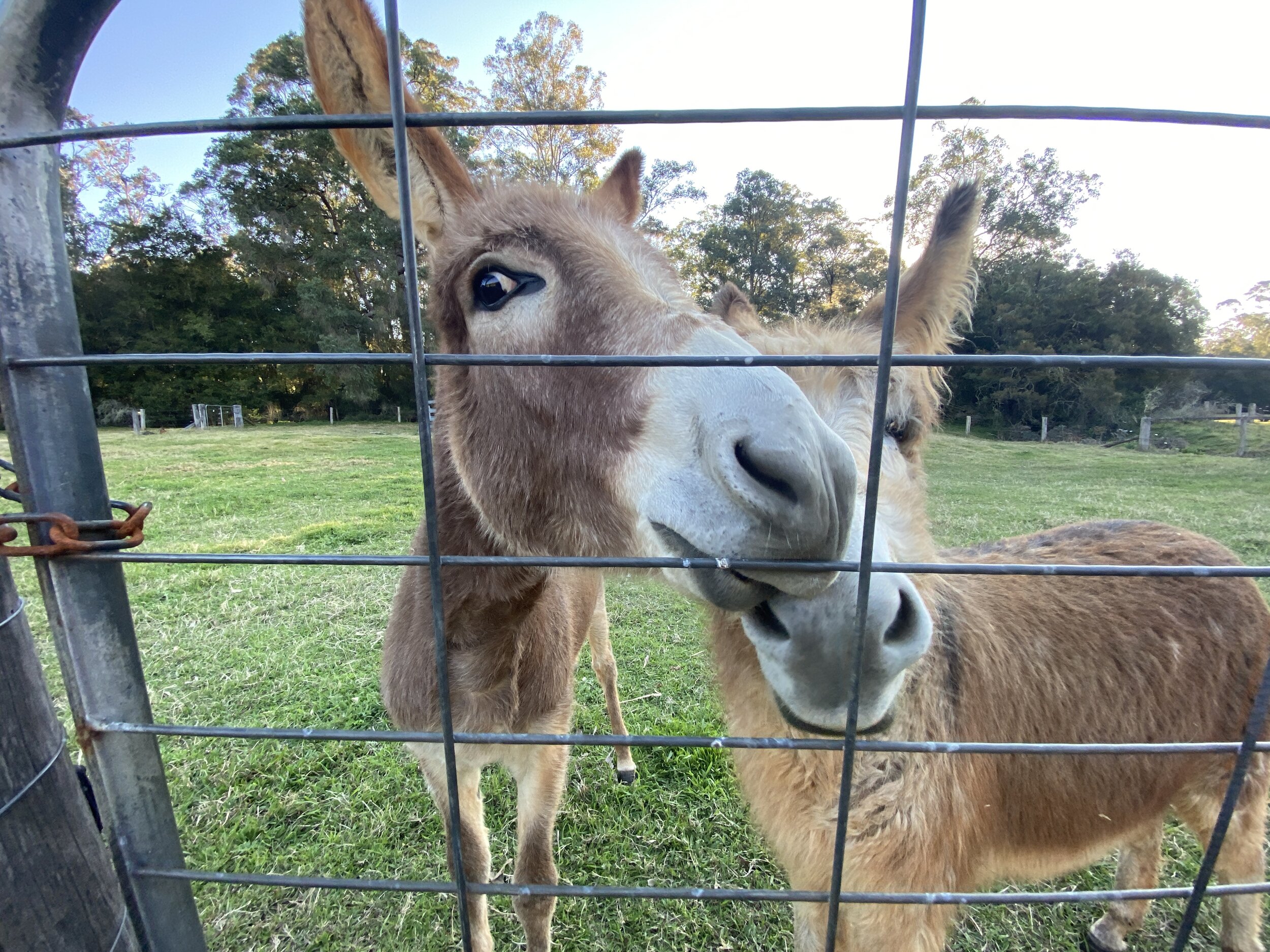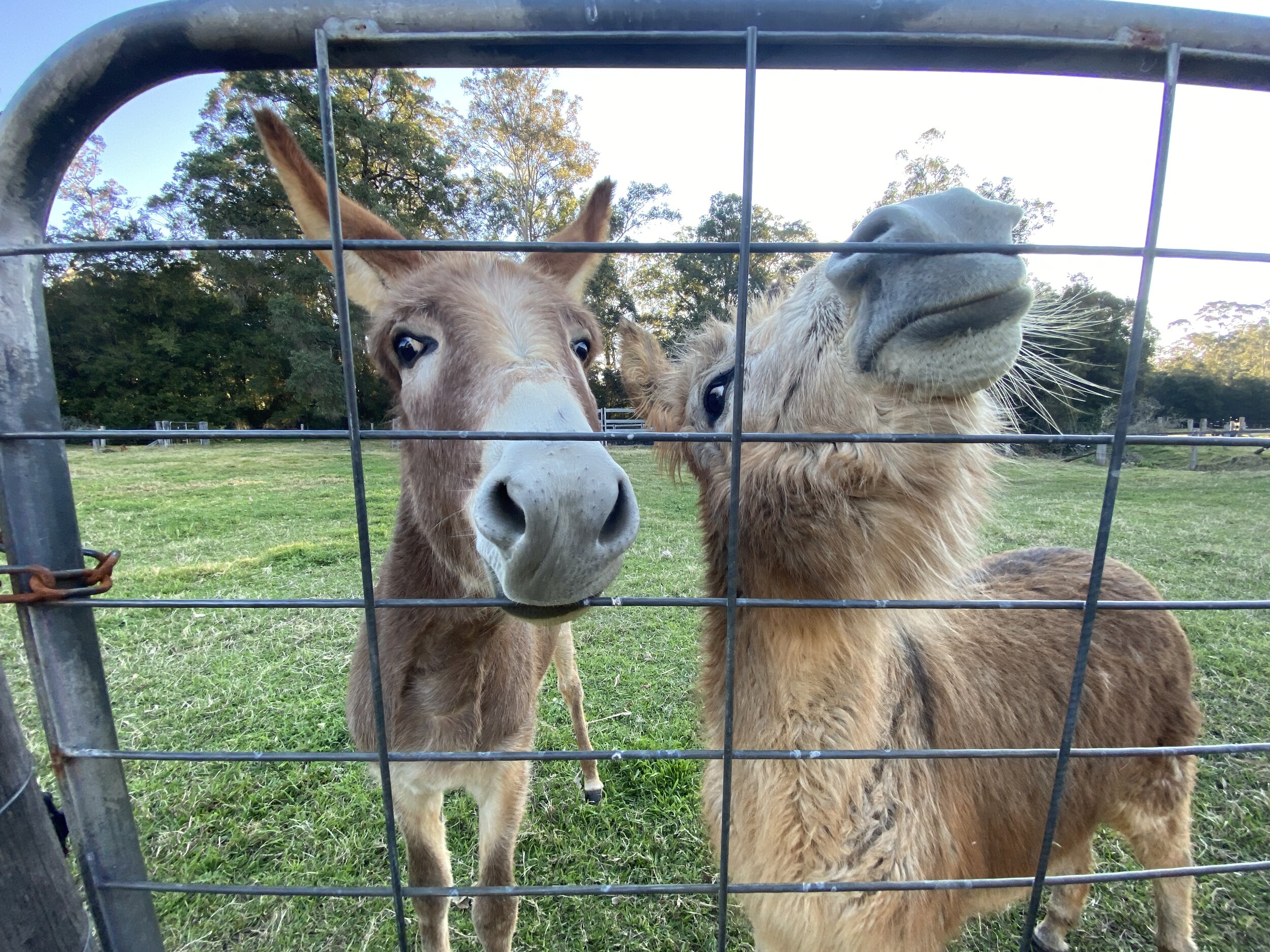Miniature Donkeys are a recent addition to the farm. They are cute, fun, highly inquisitive and just a bit silly. So why not have them! However, the main role of these little beauties is to help us in the application of a ‘regenerative system’ to manage the farm.
Alpacas are excellent small farm or acreage animals. But as the herd grows potential issues with animal health and pasture management becomes more problematic. When we started our journey on the farm we always had multi animals on the paddocks; free-range chickens, low line Angus and Belted Galloway Miniature cattle and even some Dorper sheep. Each had their issues and advantages.
Free Range Chickens; there is nothing better than real free range eggs and when chickens roam you really get to know their wonderful personalities. They were great at breaking down manure on the paddocks, especially older manure the dung beetles didn’t get to. But Chickens are excavating machines, we lost gardens, grassy areas and spent large amounts of time keeping them out of vegetable patches.
Sheep; we never really bonded with the sheep. If you eat meat they have an advantage, but our lush summer rainfall meant constant problems for their feet. They also leave manure everywhere which was ignored by chickens and dung beetles and an additional worm-risk when running alpaca. They also require different fencing, usually 6 plain wires with a low electric strand, which we did not have. It took a year but they figured that out and soon ate every edible tree they could find. They did not lost long.
Miniature Cattle; we loved having the cows, and even loved our temperamental and destructive lowline bull. We produced some wonderful calves and even experimented with on-farm butchering (with some purchased steers). Once you get to know cows well, you soon turn off meat-eating and just love being around them. Cattle manure is easily spread and the dung beetles did a beautiful job putting nutrients into the ground. In 2019 feed costs skyrocketed, and a small farm like ours with a heavy winter frost and very little winter rain does not stock cattle so easily. In good years we were fine, but bad years made it unsustainable.
We sold all our cattle in 2019 and have had a much larger Alpaca herd even since. But a single breed of animal has its own issues.
Alpacas have some incredible advantages, they are gentle on the land with soft feet, they eat comparatively little for their size, they have a couple of limited manure piles, they don’t break fences, are easy to handle with lower infrastructure costs and they are selective grazers who are gentle on the pasture. But from a regenerative process pov many of these advantages are disadvantages. Eventually the pasture has highly productive areas around the manure piles and very little nutrients is put back into the other areas. They also prefer shorter grass and when our summer grass gets to knee high they will often avoid it and over graze other areas. In a short time we noticed they were forced to eat closer manure piles and in March 2021 we had our first ever problems with intestinal worms.
The system we ran with the cattle and alpaca was perfect to help control worms and manage feed and pasture fertilisation with limited mechanical intervention. Bovines and Equines actually help break the worm cycle for the Alpaca. They also ate grass and hay the Alaca would not eat, and we ‘harrowed’ their manure, or it was spread out by dung beetles and chickens, returning nutrients more evenly to. the pasture. We did not strip graze, but we were able to use 22 acres split into 13 small paddocks very effectively for rotational grazing.
So why Miniature Donkeys? in short they will help us for the same reasons as the cattle, but with a few other advantages: they are wonderful with people, they are small (150kg vs a 300kg cow), and they have great personalities. In the end they are the next evolution of finding and perfecting a sustainable system on the farm. They are not the only part, our planting system is also key - but that’s for another post!

